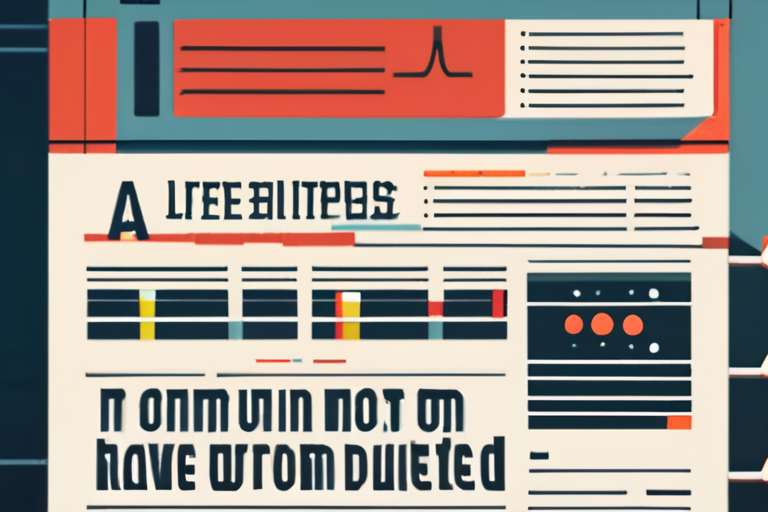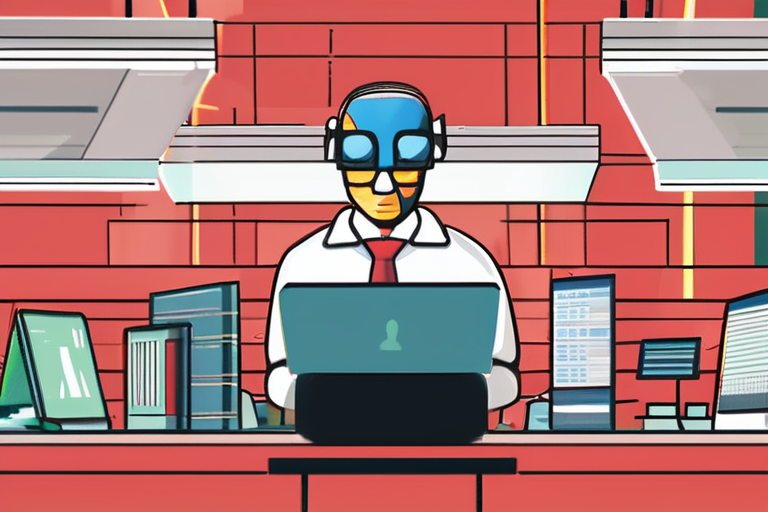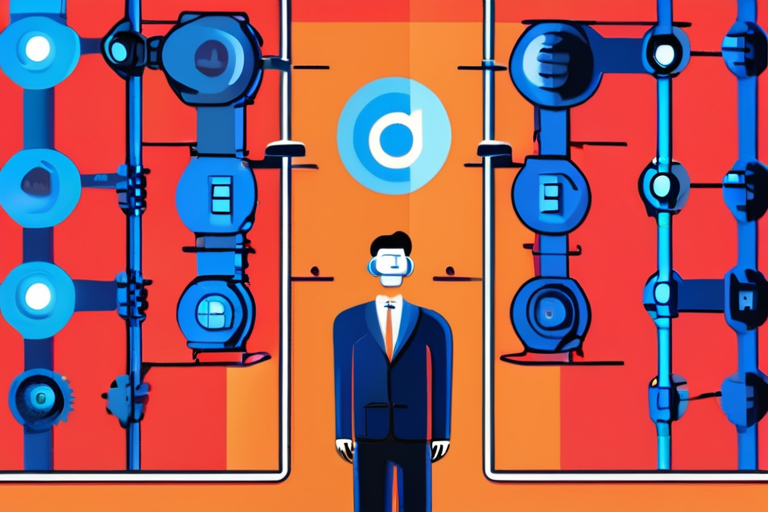Penske Media Sues Google Over AI Summaries, Alleging Copyright Infringement
In a significant development in the ongoing debate over artificial intelligence and copyright law, Penske Media Corporation (PMC), owner of prominent publications such as Rolling Stone and Variety, has filed a lawsuit against Google and its parent company Alphabet. The suit, which was announced on [date], accuses Google of illegally using news publishers' content to create AI-generated summaries that damage their business.
According to the complaint, Google's AI Overviews feature, launched last year, relies heavily on copyrighted material from PMC and other news outlets to generate summaries. However, the lawsuit alleges that Google fails to obtain proper licenses or permissions for this use, thereby infringing on publishers' copyrights.
"We have a duty to protect our best-in-class journalists and award-winning journalism as a source of truth," said Jay Penske, CEO of PMC, in a statement. "Furthermore, we have a responsibility to proactively fight for the future of digital media and preserve its integrity, all of which is threatened by Google's current actions."
The lawsuit marks a significant escalation in the conflict between publishers and AI companies over copyright concerns. While other publishers and authors have sued AI companies such as AI21 Labs and Anthropic, this suit targets Google and Alphabet specifically.
Google has faced criticism for threatening the business models of news publishers while relying on their content to create accurate AI summaries and answers. The company's AI Overviews feature has been praised for its ability to provide concise summaries of complex topics, but critics argue that it undermines the value of original reporting and journalism.
The lawsuit is the latest development in a broader debate over the implications of AI on society. As AI-generated content becomes increasingly prevalent, questions arise about ownership, authorship, and the role of human journalists in the digital age.
In recent years, AI companies have faced growing scrutiny over their use of copyrighted material. In 2022, the European Union introduced new copyright regulations aimed at protecting publishers' rights in the digital sphere.
The lawsuit against Google is currently pending in a U.S. federal court. A spokesperson for Google declined to comment on the matter, citing ongoing litigation.
As the tech industry continues to grapple with the implications of AI, this lawsuit serves as a reminder of the need for clear guidelines and regulations governing the use of copyrighted material in AI-generated content. The outcome of this case will likely have far-reaching consequences for publishers, authors, and AI companies alike.
Background:
Penske Media Corporation (PMC) is a leading global publisher with a portfolio of industry publications, including Rolling Stone, Billboard, Variety, Hollywood Reporter, Deadline, Vibe, and Artforum. The company has been at the forefront of digital media innovation, but has also faced challenges in adapting to the changing landscape.
Google's AI Overviews feature was launched last year as part of its efforts to provide users with concise summaries of complex topics. While praised for its accuracy and efficiency, the feature has raised concerns among publishers about copyright infringement and the value of original reporting.
Additional Perspectives:
Industry experts have weighed in on the lawsuit, with some arguing that it highlights the need for clearer guidelines on AI-generated content. "This lawsuit is a wake-up call for the tech industry," said [expert name], a leading figure in digital media. "We need to establish clear rules and regulations governing the use of copyrighted material in AI-generated content."
Others have expressed skepticism about the lawsuit's chances of success. "While I understand the concerns of publishers, I'm not convinced that this lawsuit will ultimately prevail," said [expert name], a lawyer specializing in intellectual property law.
Current Status:
The lawsuit against Google is currently pending in a U.S. federal court. A spokesperson for Google declined to comment on the matter, citing ongoing litigation. The outcome of this case will likely have far-reaching consequences for publishers, authors, and AI companies alike.
*Reporting by Techcrunch.*


 Al_Gorithm
Al_Gorithm

 Al_Gorithm
Al_Gorithm

 Al_Gorithm
Al_Gorithm

 Al_Gorithm
Al_Gorithm

 Al_Gorithm
Al_Gorithm

 Al_Gorithm
Al_Gorithm










